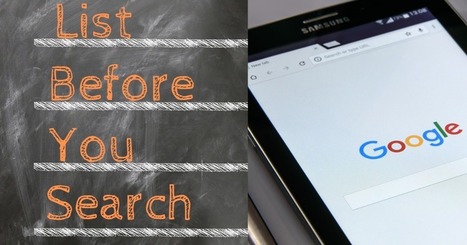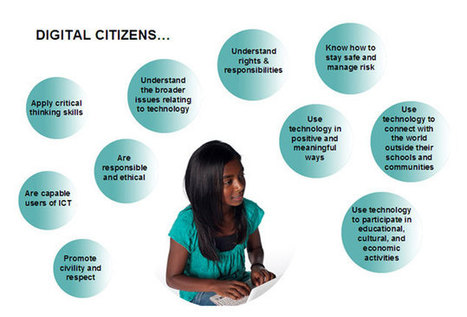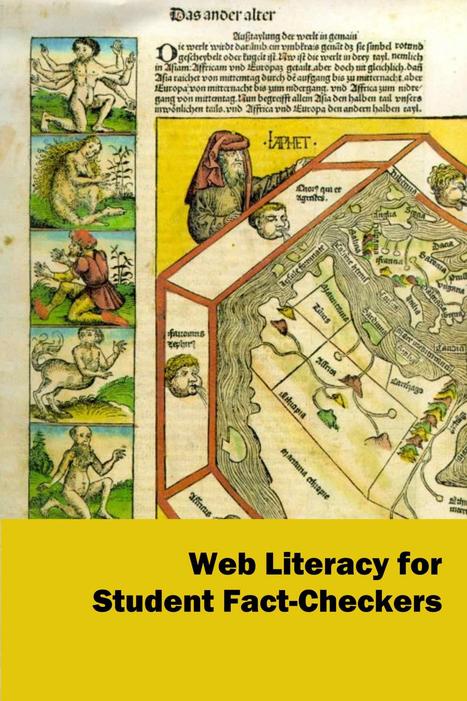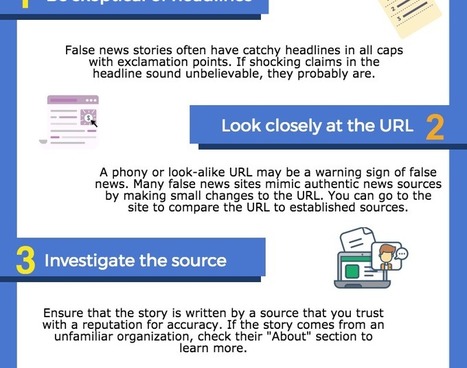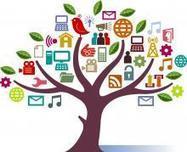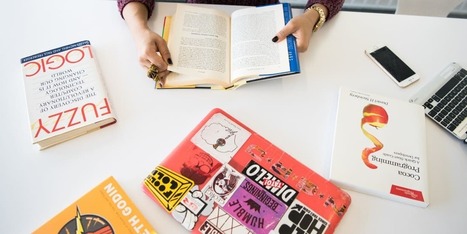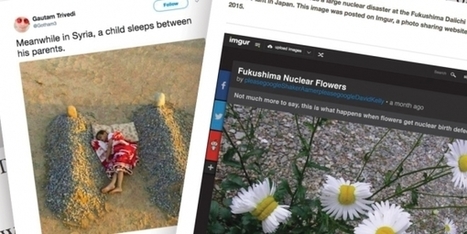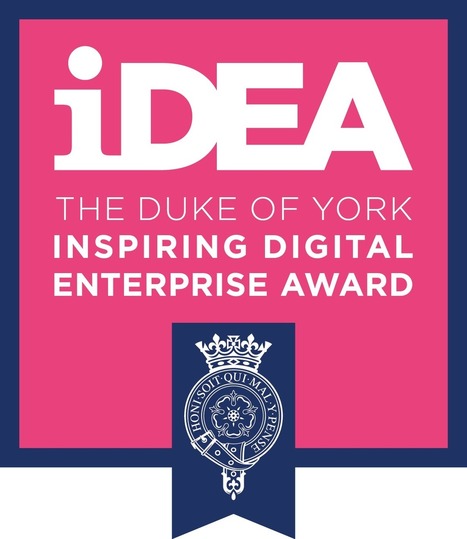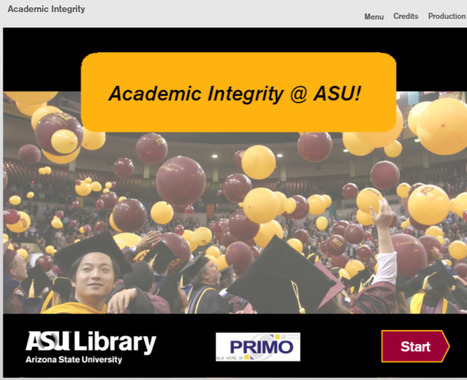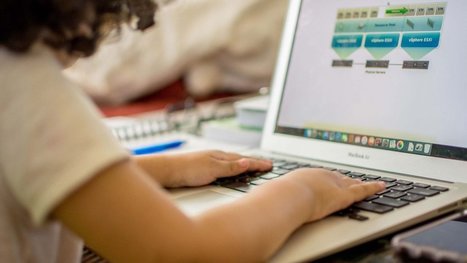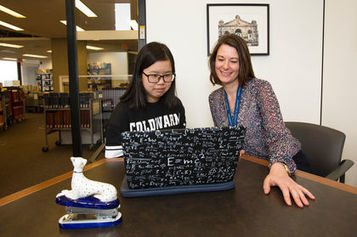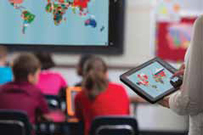 Your new post is loading...
 Your new post is loading...
Firstly, the Californian association for information literacy, LILi, has set up a page for sharing resources about teaching IL online. "Inspired by CCC COVID-19 Website Google Doc, Lifelong Information Literacy (LILi) created this blog post to collect online instruction information from all libraries in California. Please share in the form or comment below for discussions. The LILi Web Committee will summarize important information and resources in this blog as the situation evolves." This is at https://lili.libguides.com/lion/COVID-19
Talking to children in clear, age-appropriate language about the dangers of the internet can be tricky. Fortunately, Google has a free (and pretty fantastic) toolkit you can use to discuss the fundamentals with your kids. In 2017, Google launched an internet literacy program called Be Internet Awesome. It’s aimed at elementary-to-middle-school-aged children but is also accessible to those a little younger or older than that. Recently, after a slew of feedback from parents and educators, Google updated the program, which makes this an even better time to take a look if you haven’t already.
“ “How do I embed digital literacy into my curriculum?” This is a question we are being asked more and more frequently and as such, I felt it would serve as a good topic for a #5MinuteReflection. In this post I’m going to cover some key things to consider when redesigning your curriculum to include more digital skills. In this post, I refer a lot to the wonderful JISC resource on Digital Capability, if you haven’t already had a look at this resource, I strongly recommend checking it out.
This is an excerpt from a book that I have been working on for the last fifteen months. I'm getting close to finishing it.
Our students have become accustomed to entering a search into Google as soon as they are confronted by a question to which they don’t have an answer on the tips of their tongues. However, if they’re forced to take a few minutes before they search, they often find that they already know the answer. This is why a pre-search checklist should include listing what you already know about a topic. This list can be generated from memory or from notebooks (physical and digital). Not only does this process refresh students' memories, it also saves time in the long-run because they aren't spending time searching for information that they already have.
This section looks at the various aspects and principles relating to digital literacy and the many skills and competencies that fall under the digital literacy umbrella. The relationship between digital literacy and digital citizenship is also explored and tips are provided for teaching these skills in the classroom.
Web literacy for student fact-checkers - book
A few days ago we published on our Facebook page this beautiful visual featuring some interesting tips to help you spot fake news. The visual is created by IFLA and is available for free download in PDF format. If you are looking for other resources to help you teach students how to spot fake news, the visual below is a good material to add to your list.
We are constantly surrounded by information, and it is not always easy to know which sources to trust. Being able to evaluate the credibility of information is an important skill used in school, work, and day-to-day life. With so much advertising, controversy, and blogging going on, how do you sift through the chaff and cut to the chase?
Why does digital illiteracy seem acceptable in education? I think we should have higher expectations, which I have expressed in these seven suggestions.
Via Nik Peachey
“Digital literacy involves finding, using and disseminating information in a digital world” (Deakin University, 2016). Digital literacy is also a transversal skill, which means that by having good digital literacy, a person’s ability to learn and improve other skills increases through the use of technology.
In the next 5-10 years, a number of routine jobs will be taken over by automation and artificial intelligence (AI) (ACS, 2016). This automation and AI will also be ingrained in workplaces, homes and everything we do, due to the increased productivity and lifestyle gains that these technologies provide. In order to remain current in the workplace, and to be able to fully function in society, the need for good digital literacy has never been greater.
Free resource of educational web tools, 21st century skills, tips and tutorials on how teachers and students integrate technology into education
Via Educatorstechnology
What is digital and information literacy?
"Digital literacy defines those capabilities which fit an individual for living, learning and working in a digital society." JISC
In the context of OU study, digital literacy refers to the skills and capabilities of OU students using digital technologies to achieve personal, study and work-related goals.
These days, your online presence is your resume. It’s also the best way to promote your personal and professional brand. Haven’t yet jumped on the social media bandwagon? Now is the time.
Via Nik Peachey
|
Being able to critically evaluate information sources is a key digital literacy skill. With assignment time rapidly approaching, it’s important to make sure you know how to evaluate information before you reference it in your work. You can use the memorable CRAAP checklist to get started
There’s a story going around right now about a “reporter” who was following people shorting Tesla stock and allegedly approaching them for information. I won’t go into the whole Elon vs. the Short Sellers history, you don’t need it. Let’s just say that posing as a reporter can be used for ill in a variety of ways and maybe this was a case of that.
Traditional-age students are digital natives. Professors are trained researchers. Neither of those qualities, though, prevents people from falling for misinformation online. That’s one finding from a memorable study, released as a working paper in 2017, that documented how three groups of “experts” — among them historians and Stanford University undergraduates — evaluated online sources. Members of both groups tended to dig into a site, according to the study, by Sam Wineburg, a professor at Stanford’s Graduate School of Education, and Sarah McGrew, his doctoral student. The students and historians followed many of the tips that students are usually given for conducting online research, like examining a site’s domain name. But the tactics didn’t work.
Digital literacy is a hot topic these days, and we’ve previously written about the importance of it for today’s students and what teachers need to know about helping them use technology effectively to enhance modern communication.
But although the need for digital literacy is clear, actually teaching and using technology in educational settings can still be a bit of a puzzle. Of course, most students are already comfortable using a wide range of digital tools, but this doesn’t necessarily mean they know how to use these same tools for learning purposes.
iDEA is a programme that helps you develop digital and enterprise skills for free. Through our series of online challenges and events, you can win career-enhancing badges, unlock new opportunities and, ultimately, gain industry recognised awards that help you stand out from the crowd. iDEA is for anyone who wants to develop their skills.
A teacher’s most important goal is to inspire students to learn and to prepare them for the future.
Your students will be part of a digital future. There’s no question about it. We can only assume where digital is going, but there’s one thing we’re sure of: it’s going to be everywhere. Your students should be prepared to face such a future and you have to start preparing them now.
Interactive tutorial on academic integrity.
This is an unabashedly practical guide for the student fact-checker. It supplements generic information literacy with the specific web-based techniques that can get you closer to the truth on the web more quickly.
Via Nik Peachey
Computing and digital literacy initiatives aren’t new in the library — planned programs and educational offerings that support digital citizenship exist in nearly every library in the nation. But digital literacy is developed not only via programs and classes; learning is supported by informal interactions between library staff and patrons. It’s important not to overlook instruction that occurs on a one-to-one basis.
Studies suggest that many U.S. students are too trusting of information found on the internet and rarely evaluate the credibility of a website’s information. For example, a survey found that only 4 percent of middle school students reported checking the accuracy of information found on the web at school, and even fewer did so at home (New Literacies Research Team & Internet Reading Research Group, 2006). At the same time, the web is often used as a source of information in school projects, even in early schooling, and sites with inaccurate information can come up high in search rankings.
If you’re a first-year student, you may already have several essays on your to-do list but might be wondering if you even need to bother visiting your campus library. If you do plan to make your way through its doors, you may wonder where to begin since it’s as daunting as the Hogwarts Library in your favourite Harry Potter movies.
The Final Report of the American Library Association Presidential Committee on Information Literacy states, "Information literate people know how to find, evaluate, and use information effectively to solve a particular problem or make a decision — whether the information they select comes from a computer, a book, a government agency, a film, or any number of other possible resources."
This seems easy enough to teach on the surface, but when you take into consideration what students do with the information they gather, many factors enter into the learning equation. Instead of wading through hundreds of potential hits, students need to learn:
how to focus their searching strategies and zero in on the information;
- how to recognize reliable resources and those that are not reliable;
- what plagiarism is and how to avoid doing it;
- how to paraphrase a selection;
- how to give credit to their resources.
This article will provide several resources for further study and also several ideas and resources that will help you in developing your teaching strategies for your students.
|
 Your new post is loading...
Your new post is loading...
 Your new post is loading...
Your new post is loading...










